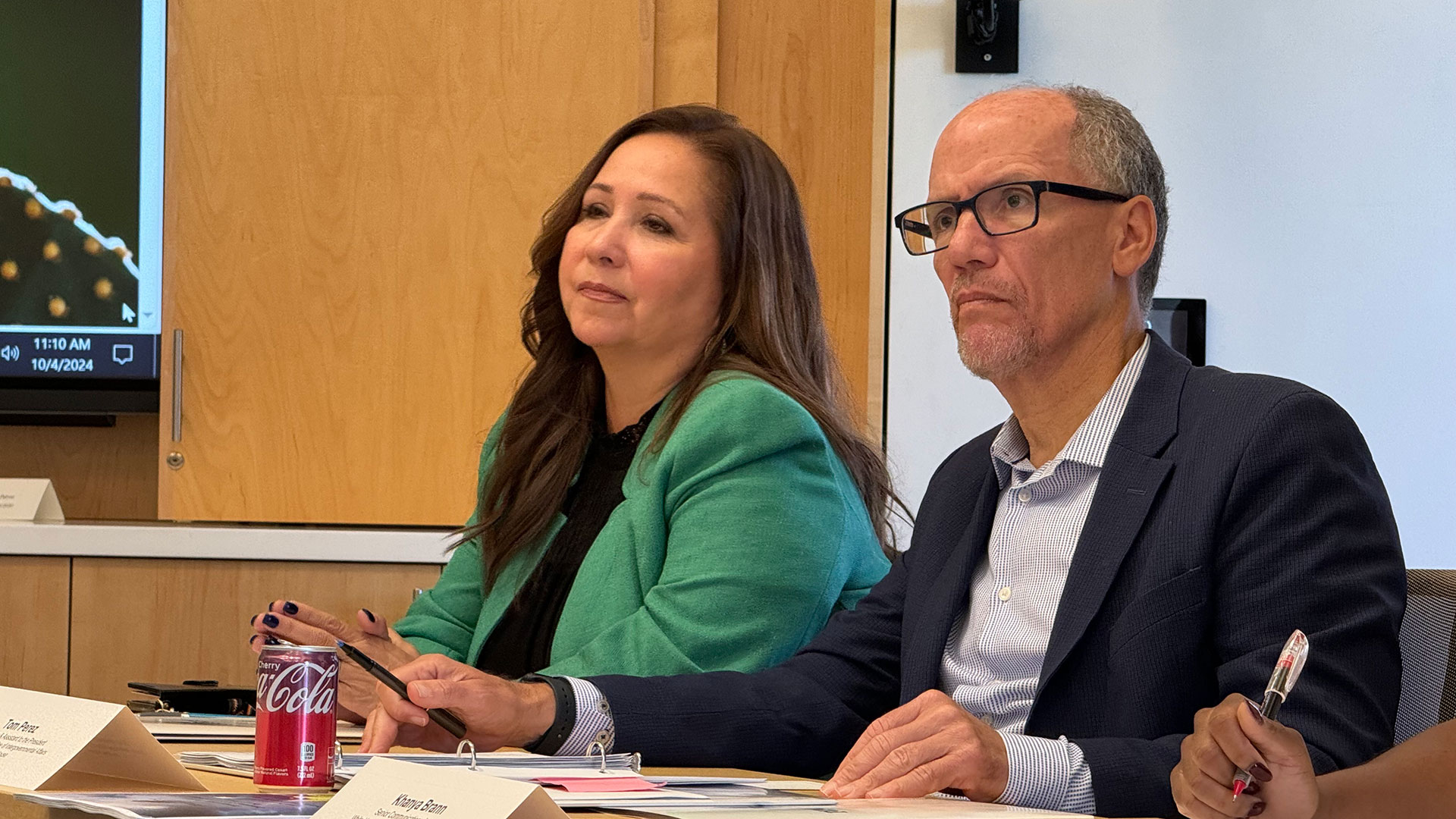 Senior Advisor and Assistant to the President Tom Perez (right) and Pima County Board of Supervisors Chair Adelita Grijalva (left) at a White House event in Tucson, Ariz., on Friday, Oct. 4, 2024.
Senior Advisor and Assistant to the President Tom Perez (right) and Pima County Board of Supervisors Chair Adelita Grijalva (left) at a White House event in Tucson, Ariz., on Friday, Oct. 4, 2024.
Tom Perez, Senior Advisor to President Joe Biden, received a briefing Friday from several Pima County officials on how the county is spending its federal dollars.
According to county data, over 500,000 asylum seekers have been processed since 2022. Perez called Pima County a “leader in effective and humane treatment of recent arrivals,” but also said the country is being forced to do the best it can with outdated immigration laws.
“We need aggressive enforcement at the border, and we need pathways to citizenship. That's what immigration reform has always been, and what frustrates President Biden, Vice President Harris, and me to no end, is that we no longer we don't have a dance partner on comprehensive reform,” he said.
Perez said the Biden-Harris administration has resorted to executive action, but that it’s “no substitute” for new border policy.
“It shouldn't take seven years to adjudicate an asylum claim. Our goal was to make it six months, three months, but we didn't have the resources to do it,” he said.
On the topic of rural internet access, Perez had many questions about the planned Pima County Regional Middle Mile Fiber Optic Ring.
The project was announced over a year ago, when the county received a five-year $30 million grant from the National Telecommunications Information Administration. The county and other contributors are providing an additional $12.5 million.
When it’s completed, the 134-mile open access fiber ring will surround the most populous regions of the county and then be leased to internet service providers and other entities to connect underserved areas.
“This fiber optic ring has microducts that then we can lease off to private companies that want to lease that access. So the cabling will be in, the micro ducts will be available for private carriers to enter into agreements for their use,” said Dr. Francisco Garcia, the county’s Chief Medical Officer.
Perez called high-speed internet access a “public good.”
“It’s like water. It needs to be affordable and accessible to everyone. Pima County is a great example of that because they recognize that there’s broadband desert here and they’re disproportionately in low-income, minority communities,” Perez said.
The county has not announced when construction on the internet loop will begin.
To close the discussion, Perez also asked county officials at the table “what keeps them up at night.” County Administrator Jan Lesher mentioned election security.
“We are going to have early voting sites open for over a month, and the opportunity for many people to potentially do harm. It's a different world,” she said.
Board Chair Adelita Grijalva said the risk of federal funding disappearing worries her.
“Now we've uncovered this huge need, and if we don't have the services, we can't pretend that those needs aren't there,” she said.
Garcia said poverty is his biggest concern.
“We need to lift people out of poverty. We need to move children through the educational pipeline, until and unless we do that, our community will not achieve an optimal level of health,” he said.
The visit was an official White House event, not a campaign event.

By submitting your comments, you hereby give AZPM the right to post your comments and potentially use them in any other form of media operated by this institution.